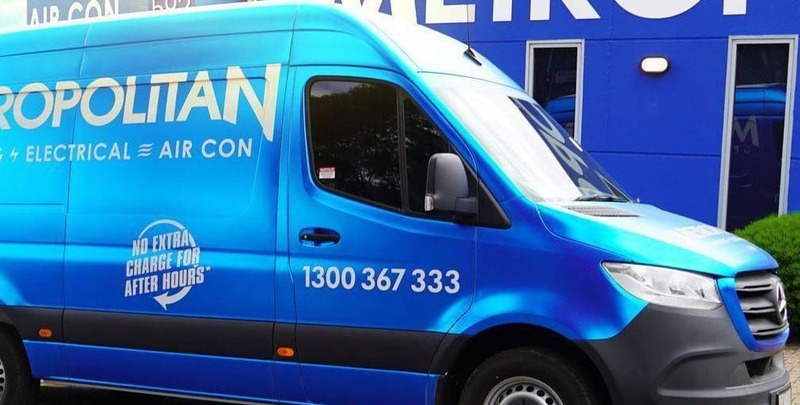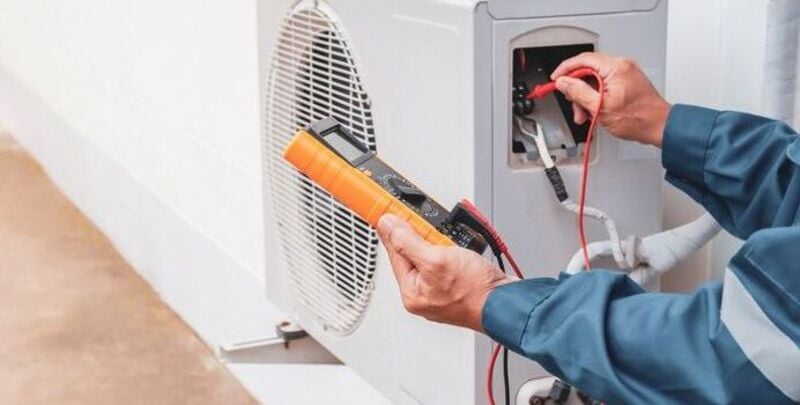
Why is My Split System Not Blowing Cold Air But Running?
In Australia’s intense summers, a reliable air conditioning system is not a mere convenience but an essential component of home comfort.
The vexation of experiencing a split system’s operation without the relief of cool air can disrupt the serenity and comfort of your living space.
This guide aims to unravel the complexities surrounding air conditioning issues, specifically addressing the perplexing scenario where a split system air conditioner is running but not blowing cold air. By dissecting these challenges, we provide a comprehensive roadmap to restore and maintain the cool, comfortable atmosphere of your home.
Demystifying Air Conditioning Mechanics
Air conditioning is founded on a simple, yet sophisticated principle: it extracts the warm air from your premises and circulates back cooler, conditioned blowing air. When this fundamental process is hindered, it signals a spectrum of potential issues.
These range from minor, easily addressable concerns that homeowners can tackle, to complex mechanical problems that necessitate the intervention of professional expertise.
Initial Troubleshooting Strategies
Is this a minor problem you can fix yourself? Let’s take a closer look:
- Thermostat and power supply: The quest for a solution often begins with the simplest measures − ensuring the thermostat is correctly set to cool and verifying that the ac unit is receiving adequate power. These preliminary steps, though seemingly elementary, can quickly rectify a cooling issue, restoring the system’s functionality with minimal effort.
- Air filter maintenance: A leading factor in compromised cooling efficiency is a clogged air filter. Consistent attention to cleaning or replacing air filters is vital for sustaining optimal airflow and system efficiency. This not only prevents the ac unit from overexertion but also extends its operational lifespan, ensuring it continues to provide relief from the heat without undue strain.
- Vents and registers: Maintaining clear pathways through vents and air registers is essential for efficient airflow. Simple actions, such as rearranging furniture to unblock vents or cleaning registers to remove dust accumulation, can significantly enhance the system’s ability to distribute cool air evenly across your space.
- Refrigerant and compressor complications: More daunting challenges arise with issues related to refrigerant leaks and compressor malfunctions. These critical components are at the heart of your air conditioner’s cooling process. Problems in this area often require the nuanced diagnosis and repair skills of a seasoned HVAC (heating, ventilating and air conditioning) professional, who can ensure your system returns to its optimal cooling capacity.
- Evaporator and condenser unit coil maintenance: The functionality and efficiency of your air conditioning system heavily rely on the condition of its evaporator and condenser unit coils. Neglect or damage to these components can drastically impair the system’s cooling efficiency. Regular inspections and cleanings of these coils are imperative to prevent issues such as ice formation on the evaporator coil or airflow blockages in the condenser coil, ensuring the system operates smoothly and efficiently.

Long-Term Considerations and Innovations
Where is the air conditioning industry going? It’s worth considering if you’re looking to upgrade in the near future.
1. The Future of Air Conditioning
The air conditioning industry is at the cusp of significant technological evolution. Innovations such as smart thermostats and highly energy-efficient systems are transforming our approach to cooling properly. These advancements offer not only greater control and convenience but also the promise of substantial energy savings and environmental benefits.
As we integrate these technologies into our homes, we move closer to achieving a balance between comfort and sustainability.
2. Air Quality and Its Health Implications
The role of air conditioners extends beyond temperature control to significantly impact indoor air quality and, by extension, our health. Effective management of dirty air filters and the strategic use of air purifiers can dramatically enhance the cleanliness of indoor air.
This is crucial for individuals with allergies, asthma, or other respiratory conditions, making enough air quality a key component of a healthy home environment.
3. Pursuing Sustainable Cooling Practices
The growing awareness of environmental issues and the rising cost of energy have propelled the search for sustainable cooling solutions. Emerging technologies like solar-powered air conditioner and geothermal heat pumps offer eco-friendly alternatives that don’t sacrifice comfort for sustainability.
These innovative solutions not only reduce our carbon footprint but also offer a cost-effective way to stay cool, marking a significant step forward in our journey towards environmentally responsible living.
4. Exploring Renewable Energy Options
The exploration of renewable energy sources for air conditioning represents a pivotal shift in our approach to sustainable cooling. Solar-powered ac units harness the sun’s energy, offering a green alternative that reduces reliance on traditional power grids and minimises carbon emissions.
Similarly, geothermal heat pumps use the stable temperatures below the earth’s surface to efficiently cool homes, further diminishing the environmental impact of our cooling needs.
These technologies not only signify advancements in eco-friendly cooling but also present a path towards reducing energy costs and fostering a more sustainable relationship with our environment.
5. Enhancing Efficiency Through Design
The efficiency of an air conditioning system is greatly influenced by its design and installation. Optimal system sizing, strategic placement of indoor and outdoor units, and professional installation practices are crucial for maximising efficiency and performance.
Engaging with an HVAC professional who prioritises energy efficiency can ensure that your cooling system is not only effective but also aligns with broader environmental sustainability goals.
6. The Role of Insulation and Building Design
Beyond the air conditioning unit itself, the design of your home and its insulation play significant roles in cooling efficiency. Effective insulation reduces heat gain, minimising the workload on your air conditioning system and enhancing overall energy efficiency.
Additionally, incorporating passive cooling design principles, such as shading, ventilation, and orientation, can significantly reduce the need for mechanical cooling, further contributing to a sustainable living environment.

The Imperative of Professional Expertise
Navigating air conditioning malfunctions often transcends the realm of DIY fixes. Complex issues like refrigerant leaks, compressor failures, or intricate electrical faults require the insight and expertise of professional HVAC technician.
Their specialised knowledge and tools enable safe, effective repairs, ensuring your system’s issues are accurately diagnosed and resolved.
Adopting a routine maintenance schedule is crucial in preventing a wide array of air conditioning problems.
Engaging professional services for annual or semi-annual check-ups can keep your system in peak condition, significantly reducing the likelihood of unexpected malfunctions during heatwaves.
Achieving a Cooler, Greener Future
Navigating the challenges of maintaining a cool and comfortable home environment, especially in the face of malfunctioning air conditioners, requires a blend of immediate troubleshooting, regular maintenance, and a forward-looking approach to technology and sustainability.
By understanding the intricacies of air conditioning mechanics, embracing innovations in cooling technology, and prioritising sustainable practices, homeowners can not only ensure efficient and effective cooling but also contribute to a healthier, more environmentally friendly future.
This comprehensive strategy, combining proactive maintenance with an embrace of technological advancements and sustainability, positions us to enjoy not only the immediate comforts of a well-cooled home but also the long-term benefits of an energy-efficient, environmentally conscious approach to cooling.
As we continue to explore and adopt these practices, we pave the way for a future where comfort, health, and environmental stewardship coalesce into a harmonious living environment, ensuring that we can face the heat with confidence and responsibility.
Please note: This information is provided for advice purposes only. Regulations differ from state to state, so please consult your local authorities or an industry professional before proceeding with any work. See our Terms & Conditions here.
Published: 12 March 2024